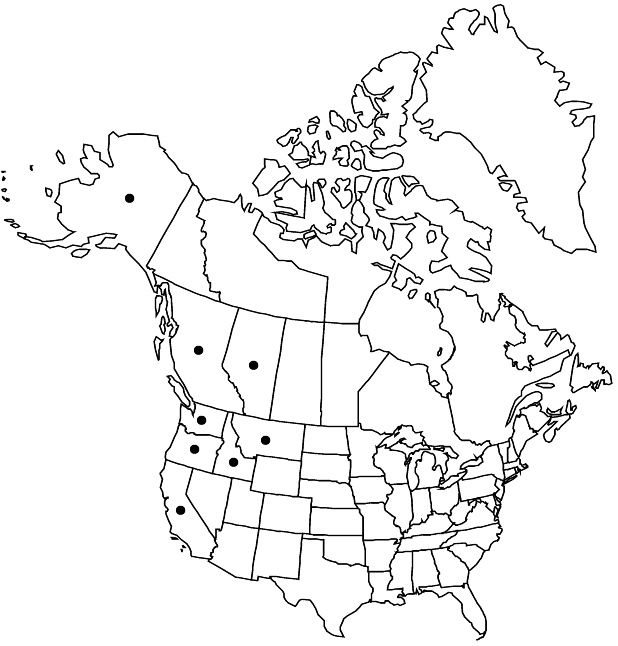Difference between revisions of "Saxifraga mertensiana"
Mém. Acad. Imp. Sci. St.-Pétersbourg, Sér. 6, Sci. Math. 2: 141. 1832 ,.
imported>Volume Importer |
imported>Volume Importer |
||
| Line 54: | Line 54: | ||
|publication year= | |publication year= | ||
|special status=Endemic | |special status=Endemic | ||
| − | |source xml=https:// | + | |source xml=https://bitbucket.org/aafc-mbb/fna-data-curation/src/2e0870ddd59836b60bcf96646a41e87ea5a5943a/coarse_grained_fna_xml/V8/V8_297.xml |
|genus=Saxifraga | |genus=Saxifraga | ||
|species=Saxifraga mertensiana | |species=Saxifraga mertensiana | ||
Latest revision as of 22:42, 5 November 2020
Plants solitary or in clumps, not stoloniferous, with caudex or short-rhizomatous. Leaves basal and cauline, (basal persistent, cauline ± inconspicuous); petiole rounded, 2–20 mm; blade round to reniform, irregularly shallowly lobed, 20–80(–100) mm, thin, margins serrate, stipitate glandular-ciliate, apex obtuse to rounded, surfaces sparsely hairy. Inflorescences 30+-flowered, open, much-branched thyrses, usually some or all flowers replaced by bulbils (sometimes bulbils absent), 15–40 cm, dark purple-tipped stipitate-glandular; bracts (± inconspicuous), petiolate or sessile. Flowers: sepals reflexed (at least in fruit), ovate to elliptic, margins eciliate, surfaces sparsely stipitate-glandular or glabrous; petals white, not spotted, narrowly ovate to elliptic, (3–)4–6 mm, longer than sepals; filaments strongly club-shaped; ovary superior. 2n = 36, ca. 48, 50.
Phenology: Flowering spring–summer.
Habitat: Moist to wet stream banks, mossy cliffs and slopes, waterfall spray zones
Elevation: 0-2500 m
Distribution

Alta., B.C., Alaska, Calif., Idaho, Mont., Oreg., Wash.
Discussion
Plants of Saxifraga mertensiana bear bulbils in the axils of basal leaves.
Selected References
None.